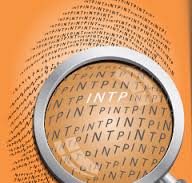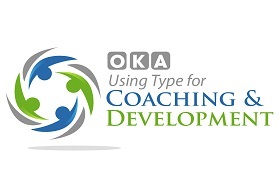 Could it be that knowing your MBTI Type might not matter?
Could it be that knowing your MBTI Type might not matter?
Invariably, every MBTI/Type training includes some folks who can’t and/or don’t want to choose a preference on any given dichotomy. Perhaps they feel equally engaged by both options, or they feel that one represents a best fit Type at work while the other represents a best fit at home. The fact is that some people–while liking Type’s ideas, vocabulary and general constructs—feel unnecessarily torn between one or more of Type’s dichotomous choices. Some people hold tightly to the idea of continual and unique human growth, which–by definition–makes simple categorization impossible.
Another challenge comes from folks believing their Type preferences can and do change. I’ve heard the comments hundreds of times—“I used to be an Extravert, but now I’m an Introvert.” Or, “Early in my career, I was a Thinker, but now I’m a Feeler.”  These thoughts–of shifting Type and preferences that are molded by environmental influences—contradict one of the MBTI’s core assertions, but ironically, I don’t think that it matters.
These thoughts–of shifting Type and preferences that are molded by environmental influences—contradict one of the MBTI’s core assertions, but ironically, I don’t think that it matters.
I believe anyone can use Type deeply, powerfully and fully without believing that Type is hard-wired or unchanging. In fact, Jung and his body of work do not seem as rigid as the MBTI and some of its devotees would suggest. The thrust of Jung’s work was actually Type Development, not the simple assigning of static Type preferences. Type Development is the life-long process of gaining greater control over all of the functions—over all parts of ourselves—moving from ignorance to awareness and then to appreciation and eventually even access and limited competence.
Jung’s theory suggests–and it is in my experience true–that Extraverts learn to become more reflective and contained while Introverts develop an appreciation for engaging the world the older they each get. Feelers develop a capacity for logic and non-personal analysis while Thinking deciders tend to open up to the human side of the equation over time. The natural state of cognitive development is for us each to have a preference for one thing and to develop a connection with its opposite over time. If this is true, you can make the argument that deriving a hard-wired, unchanging Type is an unnecessary step. The desire to address behaviors, competencies, skills and choices is more compelling to many than the defining and labeling exercise that too many Type workshops have become. The more the world is filled with Millennials and Cloud Generation folks (people born since 1980), the less popularity any such labeling system will have.
Type is great, but the focus of any MBTI session should be Type Development—the appropriate and effective use of all functions. What is Sensing; when is it useful, and how is it accessed? Type theory asserts (and I believe) these questions to be all the more compelling and challenging in light of the fact that some people are predisposed to use Sensing while others are hard-wired for iNtuition. But in the end, the bigger discussion is access, skill, and effective use. Someone’s being ambivalent about a dichotomy or feeling deeply that a preference has shifted over time does not and should not prevent a full and actionable embrace of this remarkable approach to human development.
 OKA’s newest and richest Type training is Using Type for Coaching and Development. This interactive two-day workshop uses OKA’s signature Car Model to illustrate the dynamic relationship between all the functions, while also taking a behavioral approach to Type Development. We explore (and actually do) activities that exercise each of Type’s component parts. Any coach, trainer, leader or general Type user will enjoy this compelling Type training. Come back to OKA and learn how to use Type in coaching and development.
OKA’s newest and richest Type training is Using Type for Coaching and Development. This interactive two-day workshop uses OKA’s signature Car Model to illustrate the dynamic relationship between all the functions, while also taking a behavioral approach to Type Development. We explore (and actually do) activities that exercise each of Type’s component parts. Any coach, trainer, leader or general Type user will enjoy this compelling Type training. Come back to OKA and learn how to use Type in coaching and development.

This is really rich information Hile and so needed as this comes up ALL the time. Having it be about behaviors, competencies, skills and choices first and foremost and then what it feels like to go to one end of the type spectrum first or last. Linking this to biases is key as well and resonates with leaders. I did the training under you MANY years ago now and use #MBTI regularly with my clients in Dubai, Croatia, London, US and beyond. My team uses it a lot with our work on balance, DIALOGUES and our new Get SET program on transitions and it’s a powerful tool for ALL situations.